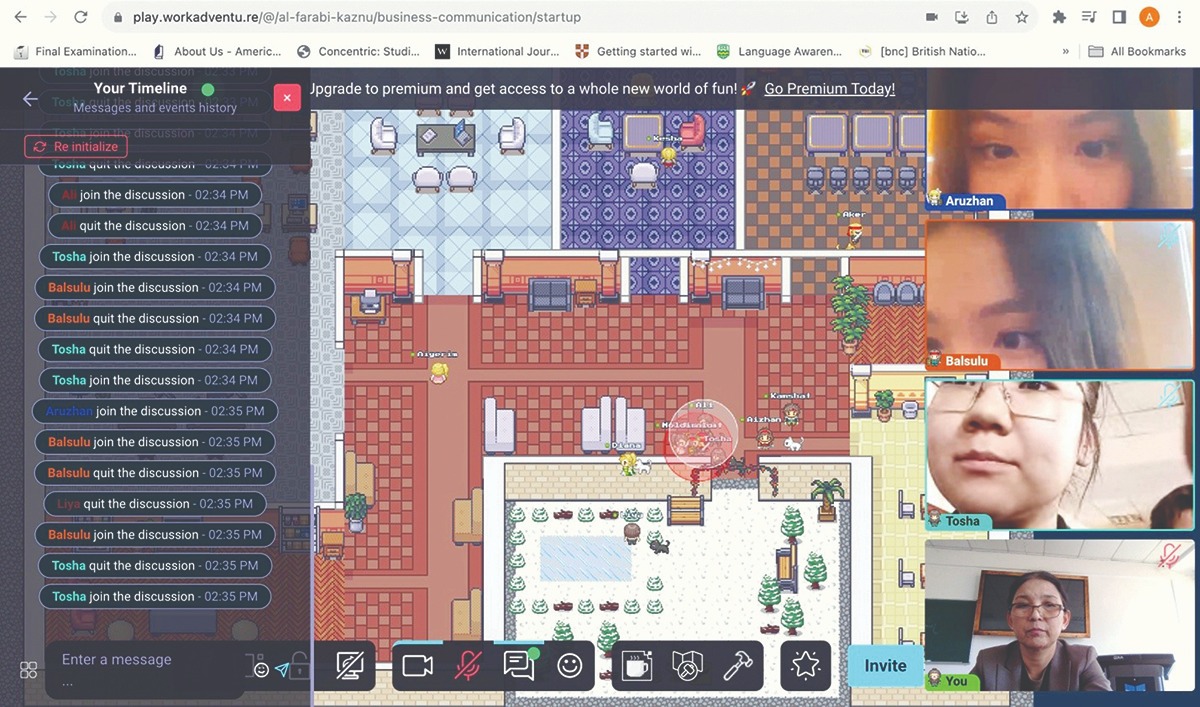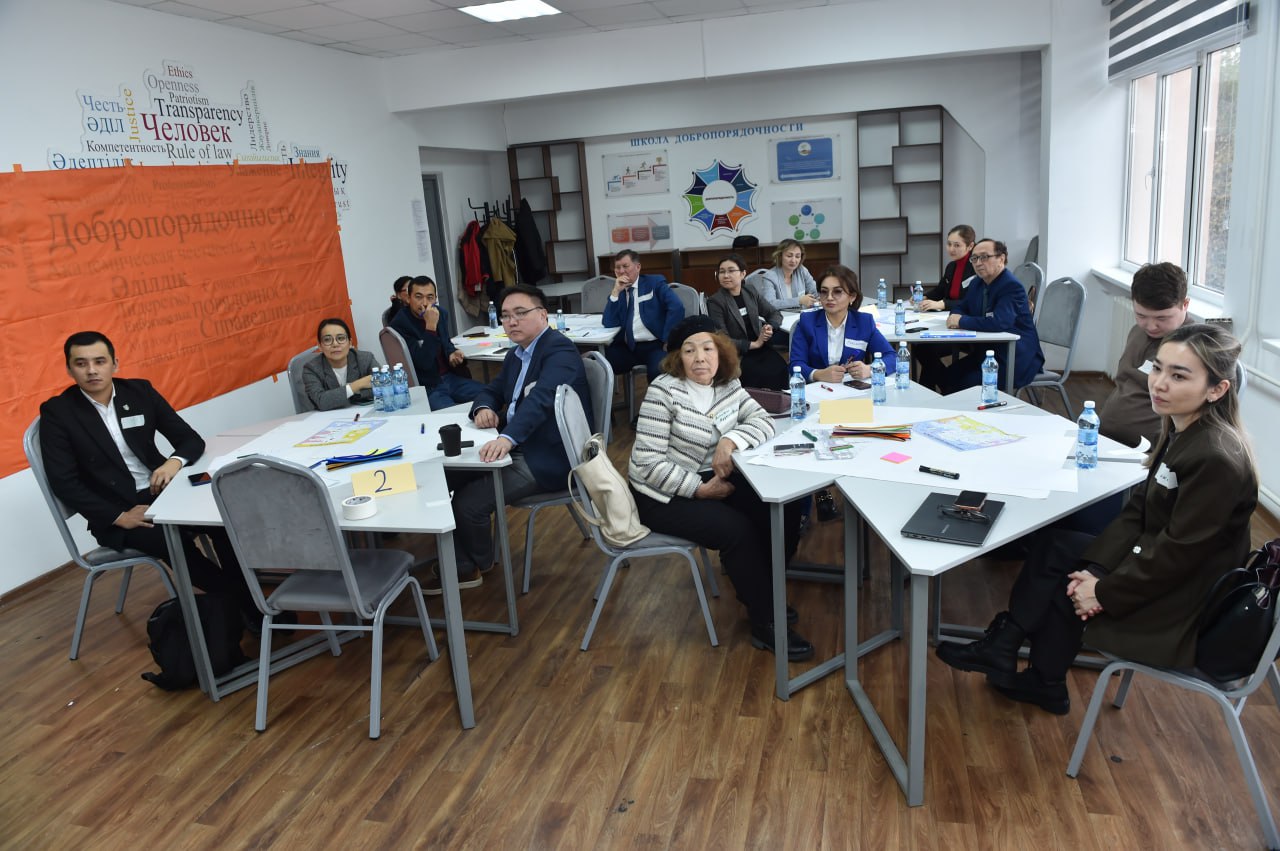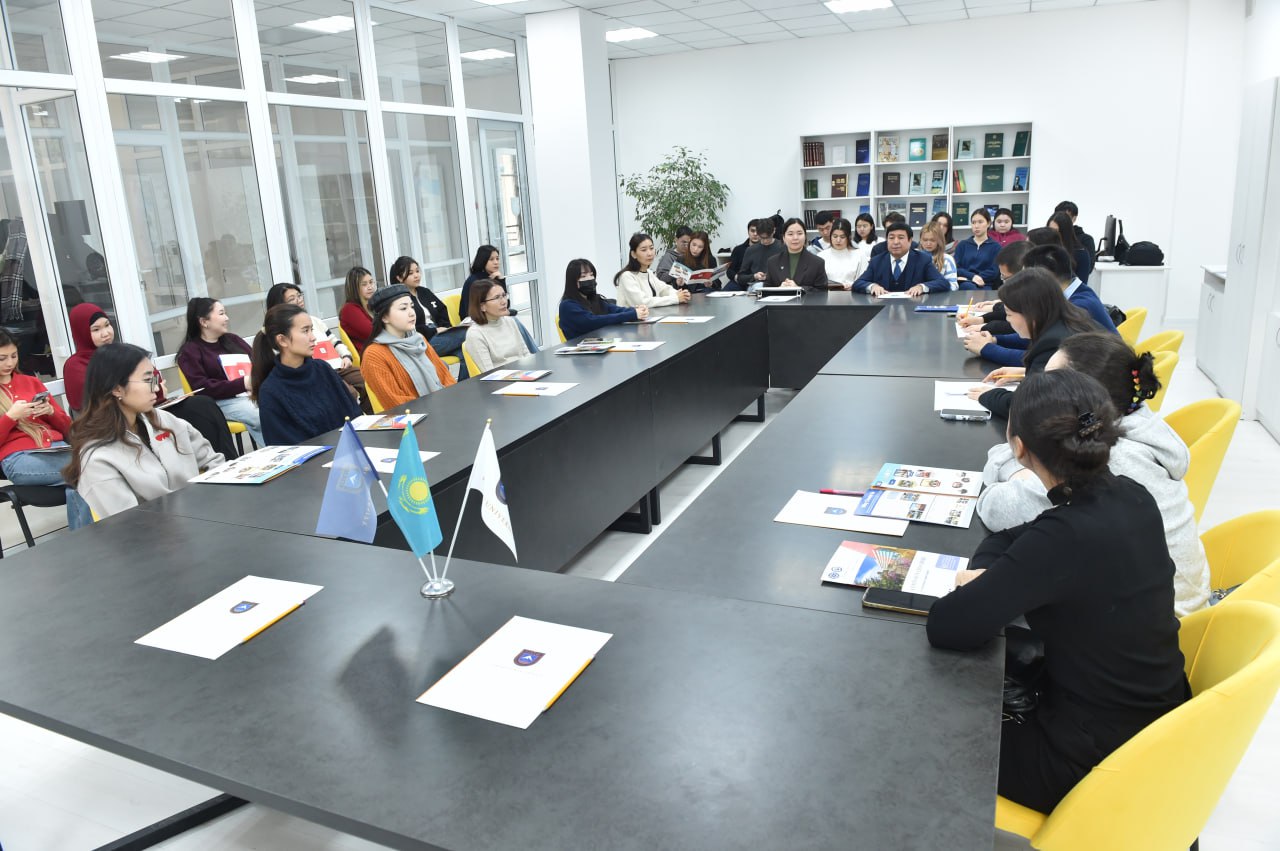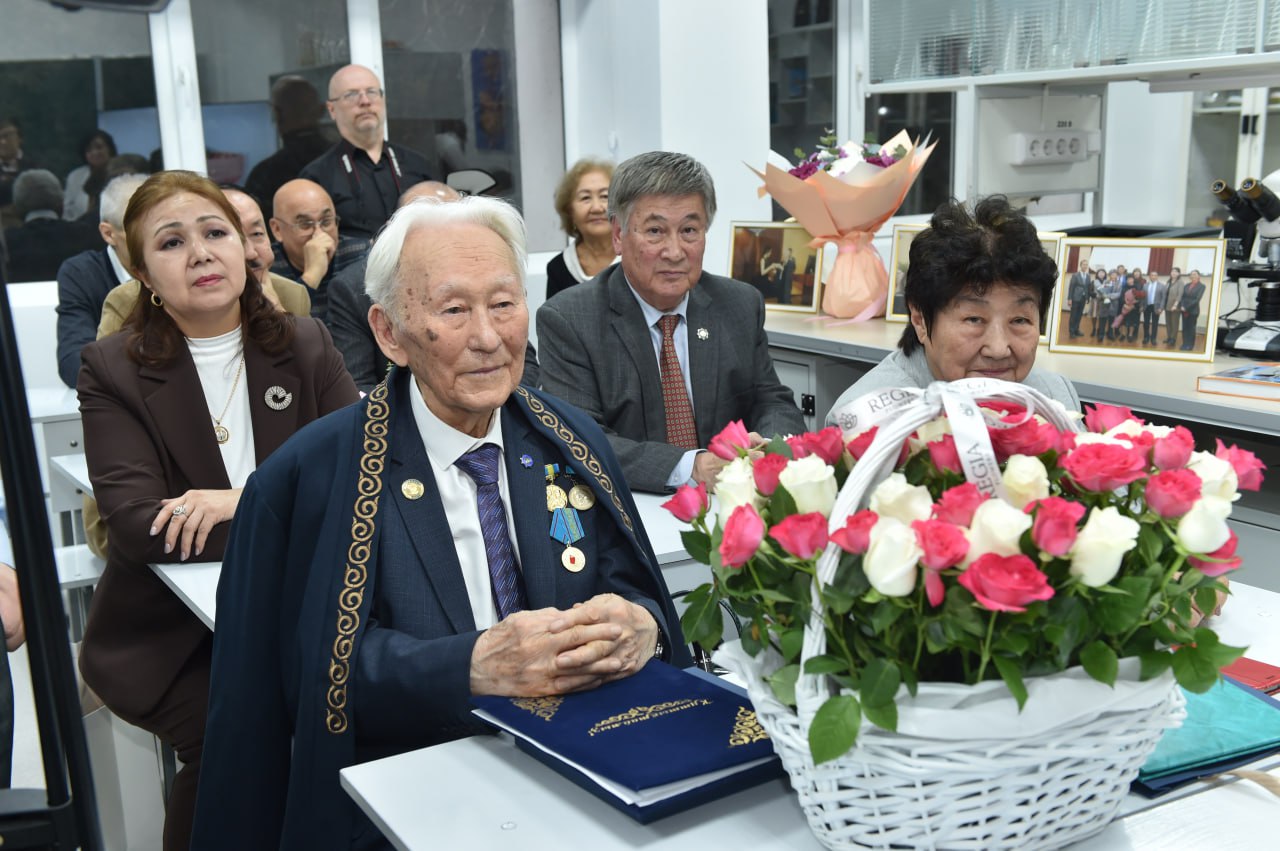
It is common knowledge that top ranked universities are renowned for creating the next generation of scientists, developers, and entrepreneurs. To succeed in training qualified specialists, higher education has always been at the cutting edge of new technologies. Al-Farabi Kazakh National University is keeping up with the times as students and professors are at the frontier of driving development.
Al-Farabi KazNU students who took the elective course “Business communication in English” were practising their skills in virtual and augmented reality technologies. Since then, Mozilla Hubs and Work Adventure are not a weird combination of words for the fourth-year students of the Oriental Studies Faculty. Besides supporting the curriculum, these digital tools provided opportunities for undergraduate students to experience what to expect in the future at their workplaces.
This year, Mozilla has ended support for Mozilla Hubs, which was a collaboration tool to create your own virtual space to be inhabited with your students. Being a portmanteau word, “Mozilla” is derivative of “Mosaic” and “Godzilla”; people would share a virtual room with friends, watch videos, play with 3D objects, or just hang out there. In our case, we used to create our own avatars in our English hub and manage the world on the topics according to the syllabus, e.g., practise narrative tenses or conditional sentences. Firefox Reality and Google VR, as well as many others, might be Mozilla Hubs alternatives for those educators who would try software potentiality in their classroom.
Another way to experience new ways of learning and interacting is Work Adventure. It is an up-to-date opportunity to practise socializing and collaborating skills for the business communication students. “With Work Adventure, educators and students can communicate, work, and organize socials in a friendly environment,” – is announced on the website. Free registration, no limit of time, 15 simultaneous users (which was suitable for our groups) are the features of the free plan chosen for the course in English. It is so nice to see your students having fun and learning more about information “related to the future of work and best practices to collaborate with remote and hybrid teams.” We were creating our own virtual world concerning “Business English” with the use of free features of the platform, dealing with different working and rest zones, and even having our own pets. “What are the benefits of working collaboratively and how can we work together more effectively?” was the main question for the “Effective collaboration” topic, “What are the benefits of mindfulness at work and how can we train ourselves to be more mindful in the workplace?” – for “Mindfulness at work”, which were based on Business Magazine of British Council Learn English.
Our students can practise skills directly from the classroom, professors and teachers can use an active learning approach, provoking discussion through immersion sessions on the course they are delivering. Everything is in favor of training competitive specialists, which are much needed in our society.
Asel SHAYAHMET,
Foreign Language department
Other news


